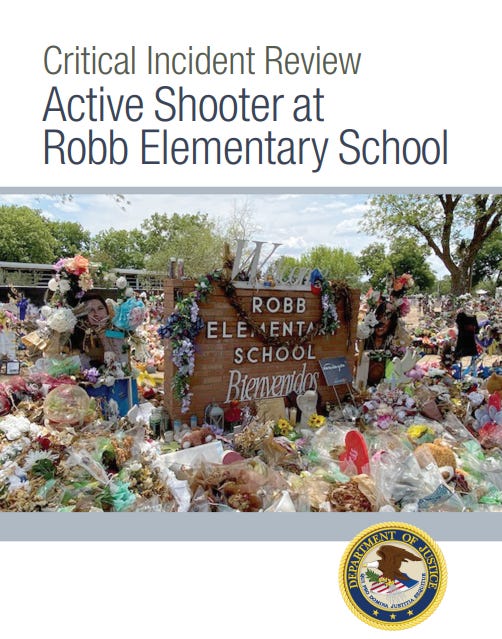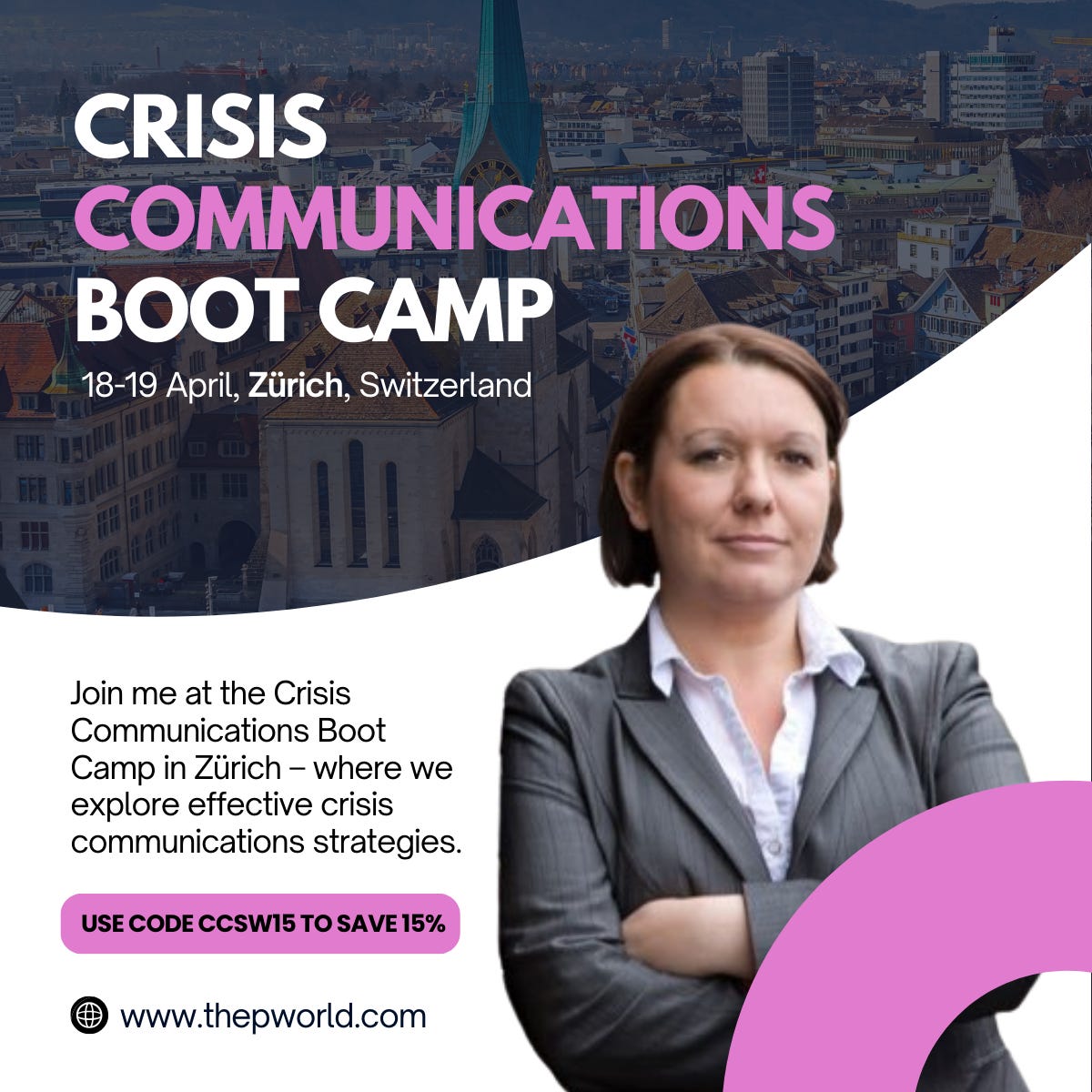Serious information failings in response to Uvalde shooting
Everyone will remember watching the horrific scenes at Robb Elementary School, in Uvalde back on May 24, 2022. There was confusion, misinformation and substantial criticism of the response.
The report into the response has been published and with a full chapter on Public Information it makes sober reading for any communication and PR person. There are 44 recommendations on public communication alone and after reading through all the details I have tried to highlight some key points in the report.
In the opening paragraphs of the chapter it states:
Inaccurate information combined with inconsistent messaging created confusion and added to the victims’ suffering, both on the day of the Robb Elementary School tragedy and in the days, weeks, and months after the mass shooting. While it is understandable that public information officers (PIOs) in smaller jurisdictions like Uvalde would have little experience in crisis communication, it does not alleviate the need to prepare—even in the most basic sense—for a worst-case scenario.
It is a reminder that we all, no matter where we work or what we do, need to be ready with crisis communication plans that have been tested and are known by the team. There were devastating inaccuracies in the information including telling people students and staff were safe when they were not, and that the offender had been arrested and was in custody when he was not. There was also a half hour time span when the the school police department said parents could pick children up from a highlighted point, then they said they could not, then they said they could, and finally they said they could not.
There appears to have been a lack of thought about how the parents would be feeling and what they needed from the communication. The report refers to it as a ‘trauma informed’ approach to communication.
The chapter also states:
During a crisis, providing information in the individuals’ primary or preferred language is critical….Providers should avoid making assumptions about a particular person, population, or community, but rather ask and learn.
It is quite shocking that despite the fact that 81.8 per cent of people in the area were Hispanic or Latino information was only shared in English. This was despite authorities being asked to share it in Spanish. Only the San Antonio FBI Field Office put a post on X (Twitter) in Spanish on the second day. Considering the diverse needs of people when they are receiving information in an emergency is essential. I advise clients to have a checklist to remind them of what they need to do, or to consider when communicating under pressure.
The following statement from the report is critical for every crisis response:
Of primary importance is that deceased and injured victims’ family members receive information before the general public and especially prior to any public media announcements. Media communications should not be the way family members are receiving information about their loved one nor the details of the incident.
It is also important to remember that training is critical even though we may be busy with other things. Those other things will never accepted as a reason why communication has been ineffective. And it is also not a short term thing. Communication and planning should continue for a long time in the future, through recovery and to the points where the situation is brought back into the spotlight.
Every responder should be trained and follow best practices regarding designated spokespersons, timely and verified (accurate) information, trauma-informed approaches, and establishment of trusted leaders in time of such disasters.
The Uvalde law enforcement community and other leaders did not continue to attempt to provide communications to the families and victims of this event. There was no follow up and no continued communications regarding any aspect of this event from leadership to family members.
There are five key points I hope everyone takes from this so that we can do better in the future.
Plan and prepare and do it in a multi-agency way
Be ready to move quickly
Ensure new posts on social media are provided and date/time stamped so it is clear what the current position is
Prioritise communication with those affected
Keep communicating and sharing information to help people
An overview of the report can be found in this CBS news article highlighting the issues of failures in public communication. View it here.
For all those who have been affected by emergencies and will be affected by them we have to do better.
New Book Underway
Amanda is in the process of writing a third book with publisher Kogan Page. This will focus on the issue of reputation management and what to do when a business’ reputation is under pressure. The book is in the early stages of development and Amanda is sharing updates through X (Twitter) @amandacomms and through LinkedIn. Details will also be shared through this Under Pressure newsletter.
Crisis Comms Bootcamp
Amanda is delighted to be joining the P World organised Crisis Comms Boot Camp taking place in Switzerland in April. Find out more below or go to the P World website here.
In Brief:
The latest report into perceptions of corruption has seen the UK fall to its lowest place in 12 years. The information published by Transparency International has the UK below Uruguay and Hong Kong. Read more here.
In a recent blog Amanda looked at the importance of ensuring your communication approach is up-to-date and not back in 2019. Find out more here.
A recent Forbes article highlighted that leaders don’t wait for a crisis to communicate and prepare to be ready. Find out more here.
New research has challenged the idea of speaking ‘with one voice’ in the response to disasters and emergencies. It highlights the importance if tailoring messages. Find out more here.
The latest crisis communication case study - Testing Times - has been published. This edition looks at emergency situations affecting events. If you would like to receive a copy email office@amandacolemancomms.co.uk
Diary Dates:
Developing a corporate communication strategy is the focus of the half day training session run by Amanda for the PRCA on 6 February. The session is fully booked but a further session is on 6 June. Find out more here.
Amanda is running her PRCA full day session on Managing an In-House team on 20 February. Find out more here.
On 14 March, Amanda is running a first half day training session on the Crisis Communication and the issues for 2024 and the coming years. If you are interested and would like to book a place email office@amandacolemancomms.co.uk




